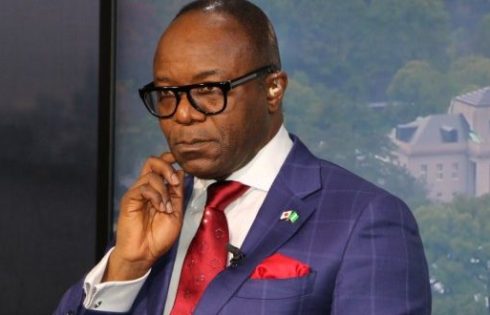By Gbenga Adedayo
Minister of state for Petroleum, Dr. Ibe Kachikwu, may not be reappointed into the new cabinet to be reconstituted in a few weeks from now by the President and Commander -in -chief of the armed forces, Muhammadu Buhari, as he begins his second and final term in office.
Sources close to the Presidency hinted Media Issues that Kachikwu may be dropped from among those in the old cabinet that are likely to be reappointed, saying his demeanor failed to inspire sufficient confidence and trust in national interest.
The source cited the internal memorandum written by the minister to the President about the conduct of the Group Managing Director (GMD) of the Nigerian National Petroleum Corporation (NNPC), Maikanti Baru, over lack of adherence to due process without recourse to his office and the corporation’s Board, to which he is chairman.
According to the source, the leakage of the memo to the press over a matter that was strictly confidential and a routine process that should have been treated without the public knowledge did not go down well with the government.
Kachikwu, who had accused Baru of awarding $25billion contracts and making major decisions and appointments without consulting either his office or the corporation’s board, was believed in government circle to have leaked the letter to online media out of frustration, thereby making vulnerable.
While this differences between Kachikwu and Baru became manifest, others which were not contained in the memo to the Presidency, also strained the relationship between the two oil men, particularly, issues bordering on approach to resolving the Niger Delta issue.
While Kachikwu, favours a peaceful approach and increased economic development for the restive region as strategy to calm frayed nerves, Baru on the other hand, is more disposed to use of military crackdown on criminal elements suspected to be vandalising oil pipelines in the region.
Generally, while it is believed the minister of state has tried to bring sanity to the oil and gas industry through some of his policies aimed at improving efficiency, transparency, good governance and accountability, others believe nothing substantial has changed. They are quick to cite the dysfunctional nation’s four refineries which have led to sustained importation of petrol, resulting in huge subsidy debts.
However, going by the minister’s disposition for extant regulations within the context of threat by disruptive technological advancements capable of reducing the relevance of oil in the future, his efforts as encapsulated in the “7 Big Wins”, are believed to be commendable.
The “7 Big Wins,” focuses on policy and regulation; business environment and investment drive; gas revolution; refineries and local production capacity; Niger Delta and security; transparency and efficiency and stakeholder management and international coordination, are aimed at stabilizing the industry and mitigating the impact of volatility of the oil industry.
In a few weeks from now, the fate of Kachikwu, President, African Oil Producers Association (APPO) and former ExxonMobil General Counsel with a doctorate degree in Law from Harvard Law School USA, will be known.


